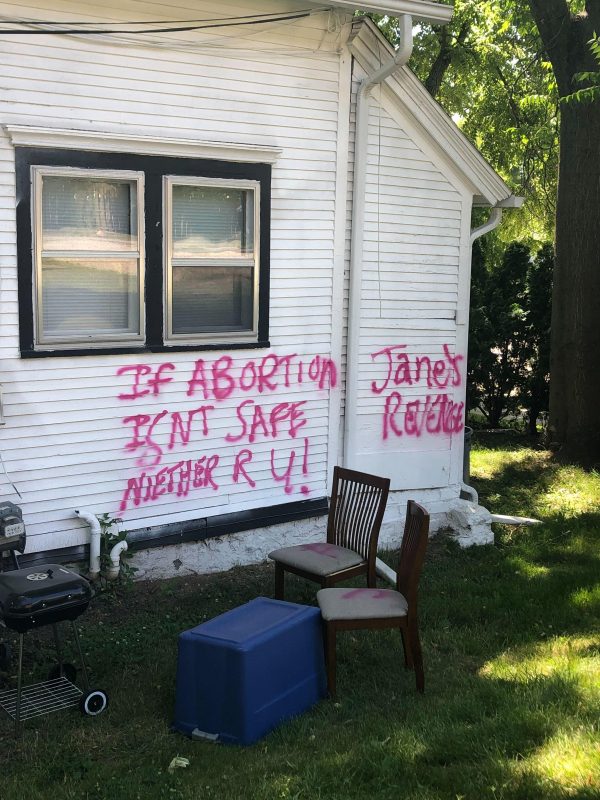Activists on Wednesday demanded that the state of California pay millions of dollars to each Black resident in reparations as a way to make amends for slavery and subsequent discrimination, dismissing the idea of payments of $5 million per person as ‘nothing’ and ‘too little.’
The demands were made at an in-person meeting of the California Reparations Task Force, which was created by state legislation signed by Gov. Gavin Newsom in 2020. The committee was hearing comments from the public as it considers final recommendations to submit to the California Legislature, which will then decide whether to implement the measures and send them to Newsom’s desk to be signed into law.
The task force is considering a proposal to give just under $360,000 per person to approximately 1.8 million Black Californians who had an ancestor enslaved in the U.S., putting the total cost of the program at about $640 billion.
Meanwhile, the city of San Francisco is weighing its own reparations proposals at the local level. Earlier this month, the San Francisco Board of Supervisors expressed ‘unanimous’ support for a draft plan of more than 100 reparations recommendations for the city, including a proposal to dole out $5 million each to qualifying Black residents. The proposal would cost non-Black families in the city at least $600,000, according to Stanford University’s Hoover Institution.
Both ideas are skimping on what’s necessary to pay Black Californians, according to activists who spoke at the gathering.
‘I believe that 5 million in reparations is too little for the work that foundational Black Americans have done for this country and as well for other countries,’ one speaker said. ‘I believe that 7.6 million [dollars] is a number that can be used very wisely in our foundational Black American communities.’
Foundational Black Americans are descendants of Black people who were enslaved in the U.S. According to the speaker, reparations are overdue for all foundational Black Americans both for the suffering they endured and for helping ‘every culture get on their feet.’ He also called for various other reparations measures, such as giving 40 acres and a tractor and colleges agreeing not raise tuition prices for foundational Black American families.
‘To try to keep holding foundational Black Americans back from what is due for us is just another form of slavery,’ he concluded. ‘It is preposterous and totally absurd.’
Another activist identified as Reverend Tony Pierce similarly said current reparations proposals aren’t enough.
‘Where’s the money? Where’s the cash? Where’s the check?’ Pierce asked emphatically. ‘$5 million, San Francisco’s already made a move. $5 million is nothing, and I’ll tell you why.’
Pierce argued that $5 million spread over 50 years would only amount to $100,000 year, and then with taxes, ‘you’ll be lucky if you end up with $40,00 a year.’
The reverend added that $223,000 for housing isn’t sufficient, saying anti-Black discrimination such as ‘predatory lending’ is prevalent.
‘Where’s the money?’ he concluded with a raised voice.
It’s unclear how California would afford to pay more than $5 million to Black residents. Newsom announced in January that the state faces a projected budget deficit of $22.5 billion for the coming fiscal year. Then weeks later, the California Legislative Analyst’s Office, a government agency that analyzes the budget for the state legislature, estimated in a subsequent report that Newsom’s forecast undershot the mark by about $7 billion.
Still, Lisa Holder, a reparations task force member and president of the far-left Equal Justice Society, vowed in a recent opinion piece that the committee’s ‘recommendations will be breathtaking.’
Last year, the state task force made several preliminary recommendations in an interim report. A final report with the panel’s official recommendations is due by July 1 to the state legislature.
In San Francisco, which has roughly 50,000 Black residents, the city board has expressed interest in various reparations ideas such as a guaranteed annual income of at least $97,000 for 250 years and a home in the area for just $1 a family.
Another idea under consideration is a ‘comprehensive debt forgiveness’ program that would clear all personal, educational and credit card debt of low-income Black households.
Like California, San Francisco is also facing a massive deficit, estimated at $728 million, making it unclear how the city would pay for such a reparations plan.










